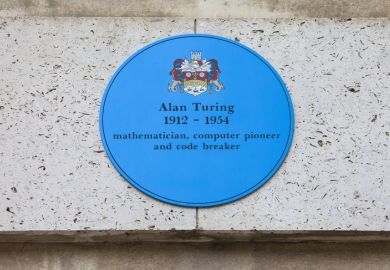Academics should be planning how they can build impact into their research projects right from the start, but at the same time should not worry if the plan does not work out.
Those are the top tips for demonstrating impact from Julie Bayley, impact officer and senior researcher in health psychology at Coventry University.
Ms Bayley told Times Higher Education that waiting to think about impact until the end of a project can leave academics “at the mercy of others”. This is, of course, the route that many researchers were obliged to follow when creating impact case studies for the 2014 research excellence framework because the criterion was introduced by the Higher Education Funding Council for England partway through the process.
“That led to a lot of people trying to create impact after their work or looking to see if there had been an effect that they hadn’t expected,” she said.
The obligation to describe how academic research has an impact on the wider world is not going to go away any time soon, and it remains firmly on the agenda for the next REF. Meanwhile, other funders increasingly want to understand the potential benefits of any of the research they invest in, Ms Bayley said.
All this means that consideration of impact can no longer be something that is bolted on to a research project at the last minute.
“If you bring impact into the start of the process, you can maximise the effects,” she said, because it will be possible to speak to all those affected by the research and “really understand what the problems are that need to be solved”.
The first steps in the process are to think about why the research is being done and how it contributes to the bigger picture on a topic, Ms Bayley explained. Next, academics should think about who might be interested in and could benefit from the findings. Then they should ask themselves what they need to do to get the research out to those people.
Academics “need to broaden their thinking about who would be interested in picking up that baton to take the research forward or use it”, she said. The users of an applied piece of research could be the health service, for example; for a more fundamental project, it might be other academics.
Most universities have people within the institution who support impact. It could be an impact officer who works across the university, or there could be a faculty-specific set-up or some less formal arrangement. Academics should make it a priority to find out who the responsible person is and get them in from the earliest stage to offer advice, said Ms Bayley.
Researchers should also remember to look beyond job titles, as a variety of support staff from the communications team to the funding team can offer support, she added.
But because the nature of research is unpredictable, academics should not worry if the plan for impact does not work out, she said. Research can throw up unexpected findings or find a new audience, so monitoring how things progress is important.
“The key issue is to have a plan and to have the right partners around the table, because then they can help you spot new opportunities or see where something is not going to be realistic,” said Ms Bayley.
Appointments
Simon Harwood has joined Cranfield University as director of defence and security. Dr Harwood moved to Cranfield from Boeing, where he was director of strategy and business development for its Phantom Works – International.
Bucks New University has appointed James Edmunds head of academic department for travel and aviation. He will take up his role in September.
The University of Huddersfield has made several senior appointments for its new postgraduate courses in architecture and the built environment. They are: Angela Lee, director of research and graduate studies; Patricia Tzortzopoulos Fazenda, head of the department of architecture and 3D design; Lauri Koskela, professor of construction and project management; and Song Wu, professor in surveying and IT. In addition, Ioanni Delsante has been made reader in urban design, Lucy Montague becomes senior lecturer in urban design, and Kaushal Keraminiyage has been named senior lecturer with principal teaching interest in quantity surveying and related subjects.
Kate Swann has been appointed chancellor of the University of Bradford. Ms Swann, who is a Bradford graduate, is chief executive officer of the SSP Group. Prior to taking up that post, she spent 10 years as CEO of WH Smith.
POSTSCRIPT:
Article originally published as: Be sure to consider impact before you dive right in (11 June 2015)
Register to continue
Why register?
- Registration is free and only takes a moment
- Once registered, you can read 3 articles a month
- Sign up for our newsletter
Subscribe
Or subscribe for unlimited access to:
- Unlimited access to news, views, insights & reviews
- Digital editions
- Digital access to THE’s university and college rankings analysis
Already registered or a current subscriber? Login




